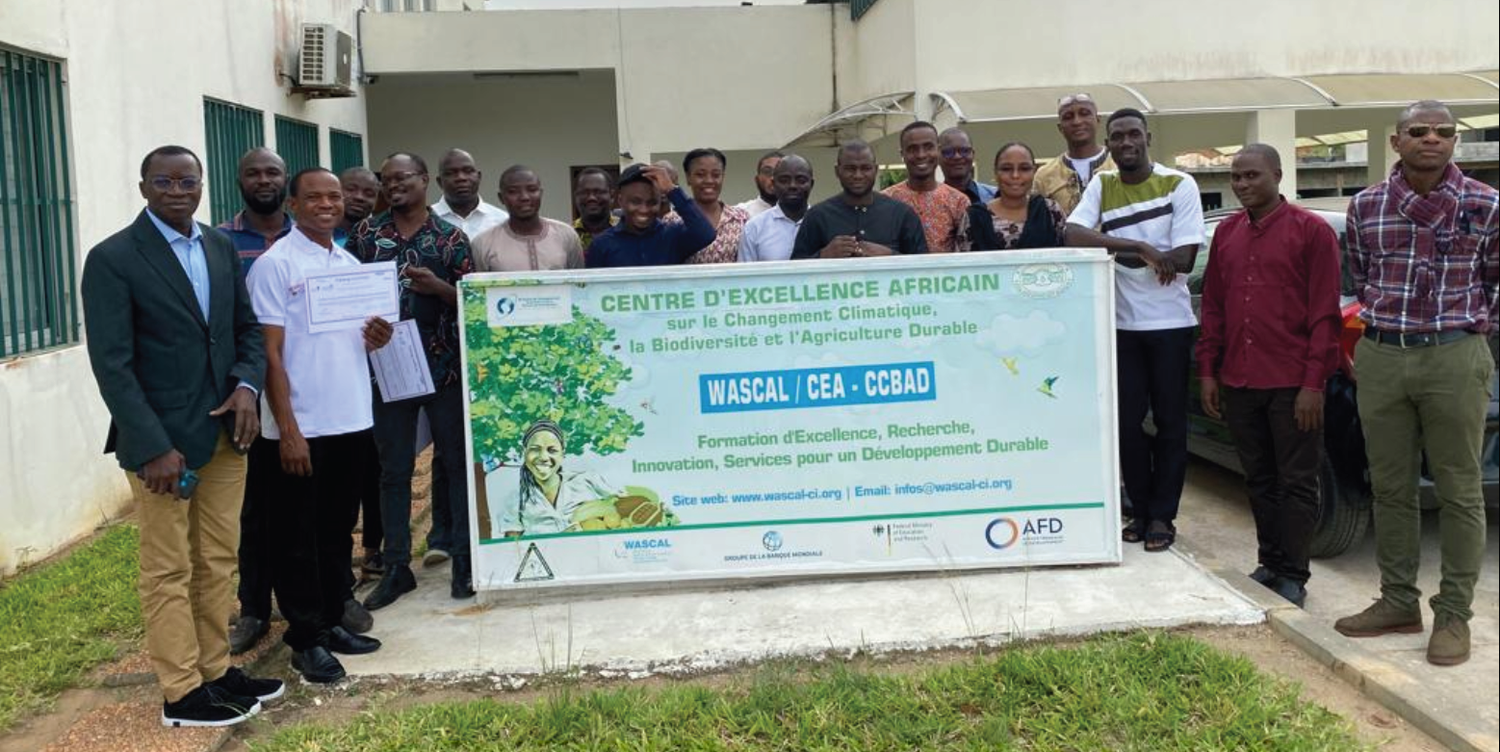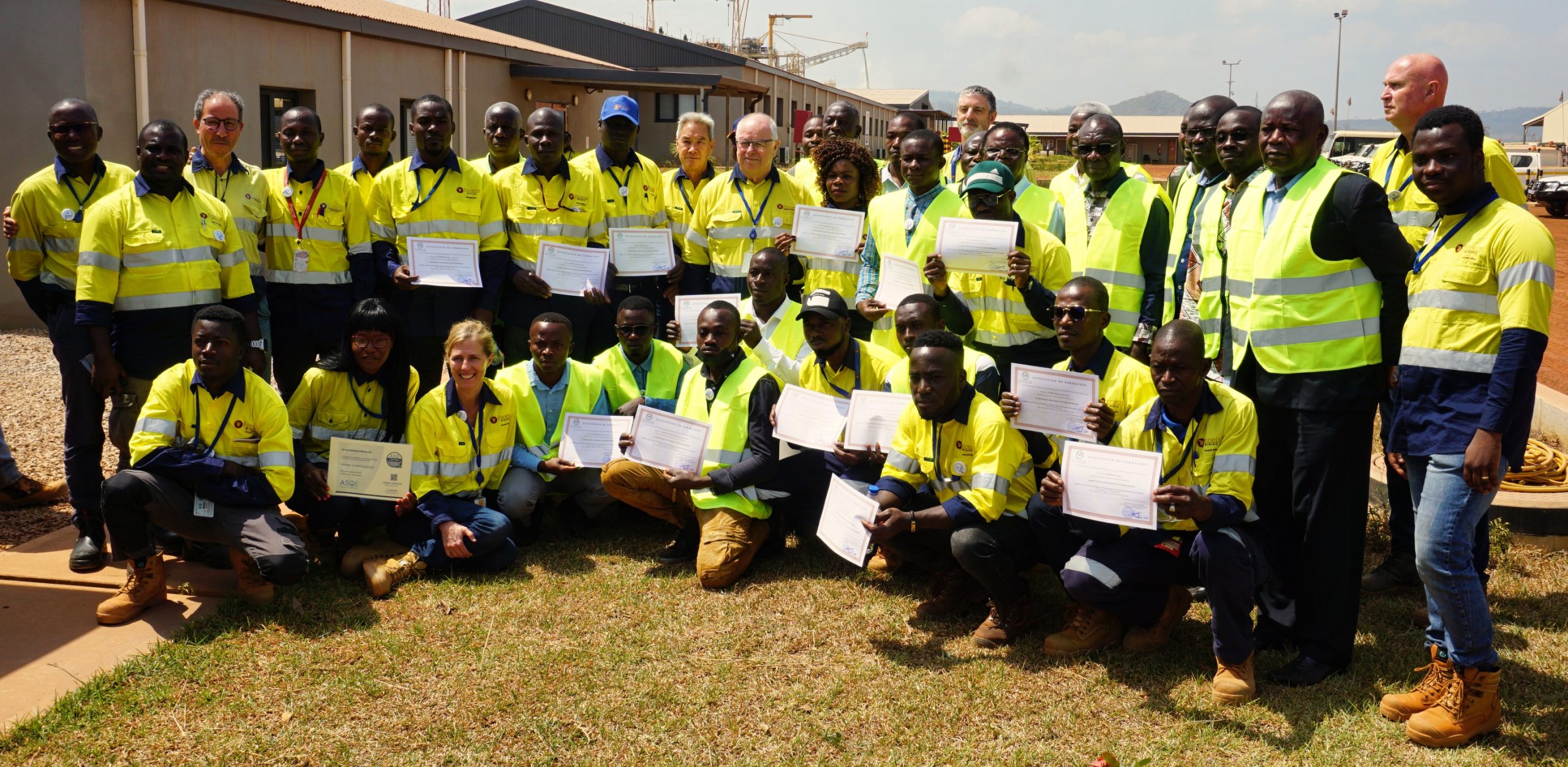According to a 2017 World Bank report on the growing role of minerals and metals for a low carbon future, mineral production could increase by fivefold to meet an estimated demand of 3 billion tons by 2050. While this burgeoning demand promises economic opportunities, it also underscores the imperative for responsible mining practices to mitigate adverse effects on communities and ecosystems, leading to health challenges to people and places. As a result, responsible mining practices aimed at fostering sustainable development has become a paramount concern for industry stakeholders and holds significant interest among development partners.
The Africa Center of Excellence in Mining and Mining Environment (CEA MEM) one of 53 World Bank-funded centers of excellence, since its inception in 2017, CEA MEM has been spearheading strategic initiatives aimed at minimizing the negative impact of mining on the environment while maximizing the benefits for mineral-rich African nations. The center has been forming global, regional, and national research partnerships and scientific networks to ensure Africa undertakes responsible mining activities and attains a sustainable mining environment.
To broaden its impact in the mining sector, CEA MEM has forged partnerships with various institutions crucial to achieving its core objectives. These collaborations encompass mining companies and other entities sharing similar aims with the Center. One notable partnership is with the Institute of Research Development (IRD), where CEA MEM is one of the three institutions under the thematic network for Responsible Mining and Sustainable Development (AMR2D). Collaborating with co-centers CEA MS in Guinea and CEA EM in Niger, CEA MEM has executed significant interventions including capacity-building initiatives for key stakeholders, organizing and participating in several summits, workshops, and other events through the ACE Partner project.
Through its partnership with IRD and under the RAMR2D network of the ACE Partner project, CEA MEM in June 2021 participated in a mining boot camp in Niger’s capital city of Niamey. Themed, Multi-scale Approaches to the Impacts of Artisanal and Industrial Gold Mining in West Africa, the bootcamp provided a platform for academic and research exchange, bringing together stakeholders from other centers, countries, civil society representatives, mining companies, and small-scale mines to deliberate on responsible mining practices for sustainable development.
The high-level meeting culminated in the Niamey Declaration of 11 June 2021 for Responsible and Sustainable Development, outlining five key action points for advancing responsible mining practices, with CEA MEM as a signatory. (1) building bridges for multi-stakeholder dialog; (2) understanding the issue of mining through an interdisciplinary, inclusive, inter-ODD, and co-developed approach; (3) identifying and sharing innovative solutions for a community of practitioners; (4) rethinking the regulatory framework for mining through this multi-holder approach and within a regional logic; and (5) formalizing and monitoring the appropriate indicators for responsible mining.
This declaration serves as a strategy for monitoring actions and formalizing the community of experts and practitioners committed to responsible mining as a vehicle for sustainable development.
Additionally, CEA MEM has established a robust partnership with the Union of Small Mines in Cote d’Ivoire (SYN-GPMACI). Through this collaboration, CEA MEM provides scientific support to small mines aiming to optimize their production and implement best mining practices.
Leveraging international platforms, CEA MEM advocated for environmentally sustainable mining practices. For instance, in September 2021 the Centre actively participated in the World Conservation Summit, organized by the International Union for Conservation of Nature (IUCN)contributing to the drafting of the IUCN Motion 67, an initiative aimed at reducing the impact of mining on biodiversity.
CEA MEM’s dedication to a sustainable mining environment was further showcased at COP15 in Abidjan. Through participation in special sessions, the Center addressed the role of sustainable mining activities in combating desertification in West Africa.

The center took part in two special sessions of the summit, themed: “Sustainable Mining Activities as a Tool against Desertification in West Africa” and “Shaping Enabling Conditions for Sustainable Interventions towards Drought Resilience in Africa Drylands: Intersecting Views.” This was made possible with the support of IRD as part of the ACE Partner project.
Furthermore, CEA MEM collaborates with German Cooperation (GIZ) to organize a series of workshops under various themes in sustainable mining, such as (1) a multi-stakeholder dialog workshop on local content in Yamoussoukro, bringing together a representative group of mining stakeholders at all scales and sharing experiences; (2) a workshop on local mining; and (3) a workshop on mine site rehabilitation, within the INP-HB initiative. The center has also championed a workshop on small-scale mines with SYN-GPMPACI on the theme, “Collaboration between Public, Private, and Academic Actors for the Improvement of Small-Scale Mine Management in Cote d’Ivoire: Contributions of the Scientific Community for Mining Entrepreneurship at the Service of Economic and Social Development?” and a workshop on small-scale mines, themed: “Scientific and Administrative Support to Accelerate the Responsible Contribution of ASMs in National Pold production?”
In April 2022, CEA MEM co-organized the inaugural edition of ‘Mining the Connections’ conference in Canada, facilitating knowledge exchange among mining researchers and educators worldwide. The conference was organized in collaboration with the MinErAL, network, the LMI AMIR, and the SESAN laboratory.
Regionally, CEA MEM actively participates in high level panel discussions in a series of sub-regional meetings, providing scientific support for the implementation of responsible mining practices across various scales. As a higher education institution, CEA- MEM prioritizes training a skilled workforce to ensure sustainable mining practices at national, regional and global level. The Centre, at the national level co-supervises theses on sustainable and responsible mining approaches and has doctoral students from other African countries: Guinea, Niger, Benin, and the Democratic Republic of Congo. The center takes an active part in the security and Gold Project in Cote d’Ivoire (SECORCI), training the first cohort of smallholder miners from the communities of Papara and Zanikaha, for the proper implementation of artisanal gold production. Lastly, CEA MEM is supporting the Kokumbo and Angovia communities with research activities covering the field of biodiversity protection, phytoremediation on soils, anthropological and sociological aspects and more. As part of the small green mine concept, CEA MEM is undertaking a study to propose measures for protecting watersheds from uncontrolled mining activities, contributing to the protection of larger aquatic systems like River Niger.
